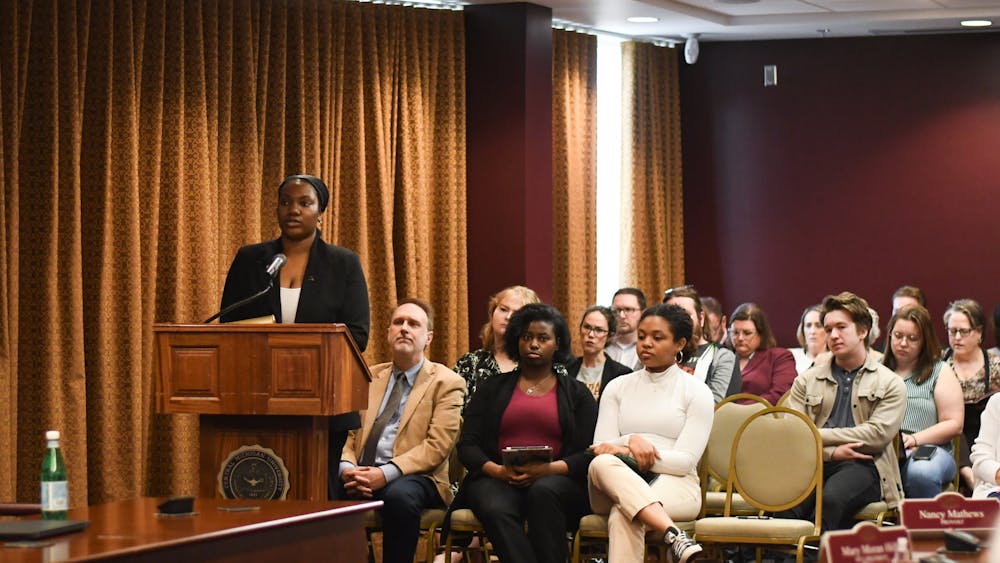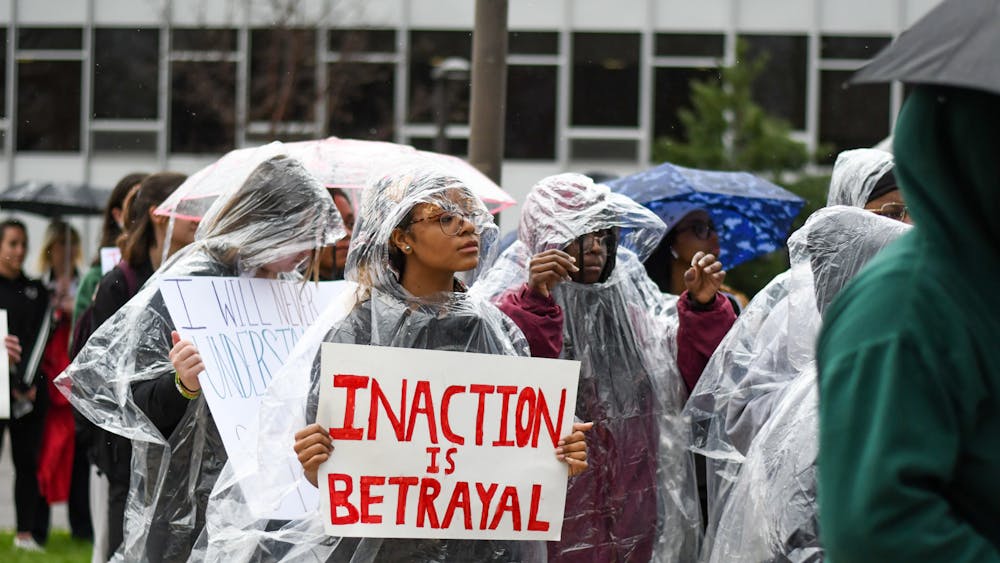SGA seeks to educate on online learning at 7 p.m. today
Jason Nichol said online classes have grown at Central Michigan University.
“Love ‘em or hate ‘em, they are here to stay,” said the Student Government Association president and Mount Pleasant senior. “It’s our job to inform students of the issues that will affect them.”
At 7 p.m. today, SGA hosts a panel discussion on online learning in the Education and Human Services Building’s French Auditorium.
Merodie Hancock, vice president and executive director of ProfEd, will talk about the history of online courses and provide information about strengths and weaknesses.
Nichol said he has found a lot of help from online classes.
“I’m a very busy person and also a music major,” Nichol said. “Between rehearsals and practicing, I don’t have much spare time, but online courses offer flexibility to complete my work at night.”
Hancock’s information will include statistics about the national perspective of online learning. After her presentation, a panel will answer questions from those in attendance.
Each faculty member will offer insight into the growing trend of online classes in higher education.
The panel consists of CMU faculty members Mary Senter, professor of sociology, anthropology and social work; Jeff Angera, associate professor of human environmental studies; William Dailey, associate professor of communication and dramatic arts; and David Whale, associate professor of education leadership.
Brittany Mouzourakis, SGA vice president and a Garden City senior, said there are many questions out there about online learning.
“Our job as SGA is to look at academic issues and be able to present them for students,” she said.
Mouzourakis hopes to hear discussion on topics such as the revenue generated from online classes, if all or only certain classes should be offered online and if these online classes are maintaining or lowering academic standards at CMU.
Nichol said it is necessary to identify target candidates for online courses since they are not right for everyone.
Hancock supports online education, along with traditional teaching.
“In many ways, it offers what face-to-face does not,” she said. “It’s up to faculty and students to utilize the strengths and weaknesses of each.”




